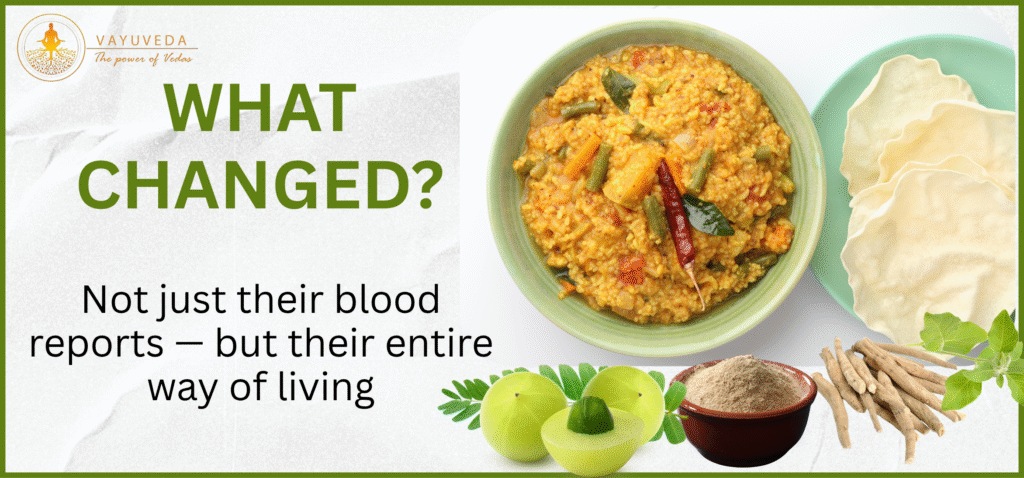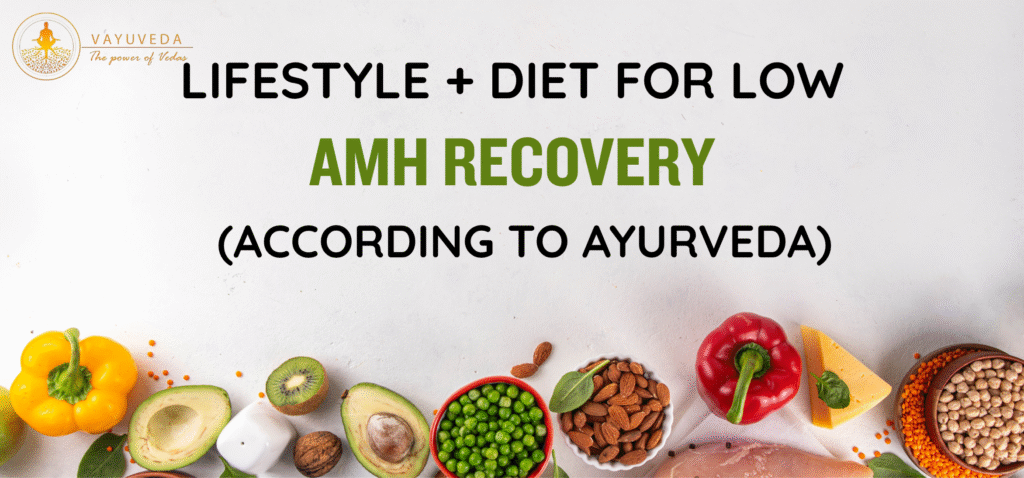You’re too late.
That’s what many women hear when their AMH (Anti-Müllerian Hormone) levels come back low.
Doctors shake their heads. Clinics suggest egg donors. IVF costs start piling up. And somewhere deep inside, the dream of natural motherhood begins to fade. However, Ayurveda has a different story to tell — one that begins not with despair, but with profound understanding.
What is Low AMH and Why Does It Matter?
AMH is a hormone that reflects the number of eggs left in a woman’s ovaries.
Low AMH = fewer eggs = reduced chances of conception (according to modern medicine).
But here’s the thing:
Low AMH doesn’t mean zero fertility.
It means lower quantity, not necessarily poor quality.
And Ayurveda believes that quality and balance are more important than quantity.
What Does Ayurveda Say About AMH and Fertility?
Ayurveda doesn’t use terms like “AMH.”
Instead, it speaks of Shukra Dhatu — the reproductive tissue responsible for fertility in both men and women.
When Shukra Dhatu is depleted, women may experience:
Irregular or scanty periods
Weak ovulation
Poor egg quality
Hormonal imbalance
Anxiety and fatigue
This depletion is linked to:
Disturbed Vata (excess movement, dryness)
Weak Agni (digestive/metabolic fire)
Lifestyle stress, poor diet, lack of rest
But the good news?
Shukra Dhatu can be nourished. Replenished. Restored.
Ayurveda is not just about pushing the body to conceive; it’s about reviving your natural fertility. It’s about you taking charge of your body and your journey.
Real Women. Real Change.
We’ve spoken to many women with AMH as low as 0.3 or 0.5 who were told they had no hope. But through consistent Ayurvedic therapy, their cycles returned, ovulation restarted, and in some cases, natural conception followed. Their stories serve as a testament to the power of Ayurveda and the remarkable resilience of the human body.
But through consistent Ayurvedic therapy, their cycles returned, ovulation restarted, and in some cases, natural conception followed.
What changed?

Not just their blood reports — but their entire way of living:
Slowing down
Eating warm, nourishing foods
Using specific fertility herbs
Sleeping better
Reducing Vata through daily routines
Ayurvedic Herbs That Support Low AMH Healing
Here are some time-tested Ayurvedic ingredients known to nourish Shukra Dhatu and balance reproductive function:
Shatavari – deeply rejuvenating for female hormones and egg quality
Ashoka – balances estrogen, supports uterine health
Lodhra – helps regulate periods and reduce inflammation
Dashmool – calms excess Vata (a significant factor in early depletion)
Putrajivak Beej – classically used in Ayurvedic fertility protocols
These are not magic pills — but when used in a structured way (with proper Bhavana or infusion process), they help your body rebuild what has been lost.
One such holistic blend, developed specifically for Indian women, is Kulvansh for Female. It is a blend of [specific ingredients] rooted in these principles.
Lifestyle + Diet for Low AMH Recovery (According to Ayurveda)

Eat warm, oily, nourishing foods: Ghee, moong dal, khichdi, cooked veggies
Avoid cold/raw items: Salads, smoothies, cold milk, packaged snacks
Daily oil massage (Abhyanga) with sesame oil
Sleep before 10 PM – the body heals at night
Practice grounding yoga and slow breathing (Pranayama)
This isn’t just about hormones — it’s about creating a fertile environment inside your body and mind.
You’re Not a Report. You’re a Woman with Power to Heal.
If your AMH is low, don’t panic. Don’t lose yourself in numbers.
“What can I do to support my body’s natural rhythm?”
Ask instead:
Ayurveda doesn’t guarantee instant results.
But it gives you something just as powerful:
Hope. Strength. And a way to retake charge.
Final Thought
Your fertility journey is personal, sacred, and unique.
Whether you choose Ayurveda, IVF, or both — do it with clarity, not fear.
And if you’re looking for natural ways to support low AMH, explore deeper.
It’s essential to consult an experienced Ayurvedic doctor. They can help you understand your Prakriti and guide you on your journey to healing and fertility.
You might find that the solution isn’t outside — it’s already within you.
